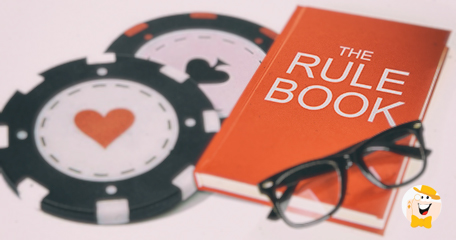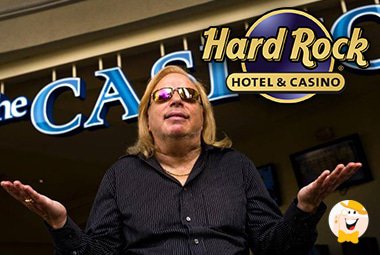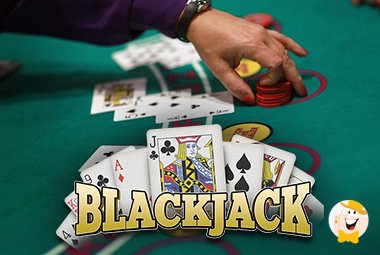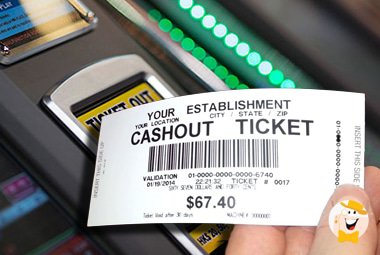
Let’s say that you stick $100 into a Video Poker machine and are playing a $1 denomination game in the United States. All of a sudden, you are dealt four-to-a-Royal initially and, just for good luck, have someone you are with hit the button on the machine.
Great news! The 1 in 47 chance came in and you just hit a $4,000 Royal.
Just one thing, you don’t get the money.
As happened with an even larger $100,000 jackpot, an individual named Jan Flato found out that what matters is who pushes the button as opposed to who sticks the money in or is sitting at the machine.
In this particular case, there was some dispute over who actually stuck the money into the machine. The woman Flato was with, one Maria Medvedeva Navarro, claimed that she had stuck $100 in a different slot, ran it up to $400, then switched machines and they were playing on that same ticket.
In any event, in the eyes of Hard Rock Seminole as well as most other casinos in the country, it is irrelevant who the original money belonged to. In this case, Medvedeva Navarro would be entitled to the money anyway.

While there are some people out there who might believe that it makes more sense for a casino to launch a thorough investigation to determine who the money belongs to, the casino has no actual responsibility to do so and is free to set their own policy regarding payouts. Furthermore, at least as far as casino lawyers seem to be concerned, the money always belongs to whoever hit the button in the event of a jackpot.
It makes sense that the casino would come up with a hard and fast rule to cover all cases, except for those of outright theft in which an individual might come and hit a button without permission. The reason that it makes sense is that it is not for the casino to get involved in what might be a legal matter between two of the patrons. Certainly, they might provide any surveillance evidence they have of the events in question if subpoenaed or otherwise requested by an attorney, but it is not the casino’s job to decide what money belongs to who.
Even if an individual directly pulls money out of his wallet and a different person hits the button, how does the casino know that the money was not the repayment of a loan to the individual who hit the button if that is what the person claims? It is for that reason that the casino is going to have a rule that gives them the ability not to get in-between what is effectively a civil dispute between two opposing casino patrons.
Casinos Do Not Mediate Debts Between Players:
Anyone who plays Blackjack and has studied the game at all should be aware that it is always a good idea to double an eleven against a dealer six. It is one of the few rules, with the exception only to a ridiculously negative count, that has no exception regardless of the set of Blackjack rules under which one is playing.
The reason why it is such a good play is that the player only has positive expected value, in fact, the expected value of any double is so positive that it is better just to take the one card and not have the opportunity to hit again regardless of what that card is. While a player would not hit a total of twelve or more against a dealer six anyway, there are some cases in which a player has a better probability of winning the hand by hitting than by doubling, just with a lower expected value.
One example of such a hand is that of a dealer ten against a player total of eleven in games in which the dealer peeks for Blackjack. Because the dealer absolutely does not have a Blackjack, the player is at an advantage given the probability of drawing another ten card. Therefore, the correct decision is to double.
However, a player would generally hit totals of 12-15 against a dealer ten while Surrendering (otherwise hitting) a sixteen in most other sets of rules. The reason for those plays on those hand totals is that they make the player more likely to win the hand than the player would be by standing. Even with that fact, though, the player’s expected value is still more positive by taking one card as opposed to merely hitting and leaving open the possibility of another hit!

Knowing this, one opportunity that may occasionally come up for the savvy player paying keen attention is the opportunity to double-down on another player’s behalf if the player does not have enough chips in front of him to do so and has no money with which to buy back in. It is actually an excellent opportunity for the savvy player who notices the opportunity and capitalizes by paying for the double down under the agreement that any winnings from the double down (and the original double down amount) go back to the player who loaned the money.
The only problem with the arrangement is those occasions when the other player wins the hand and decides not to honor the agreement. The fact of the matter is that the dealer could hear the entire arrangement, understand what is agreed upon, the casino could permit such arrangements to take place, but they have neither the inclination nor authority to enforce it. If the original player decides to keep the chips, the casino will not get involved in any way whatsoever. Even if the dealer understands that it was supposed to be a loan, the casino will generally do nothing to enforce the paying back of the loan.
Furthermore, if it goes half-wrong and the player returns the chip(s) originally lent but does not give the player who lent him the chips the winnings from the double-down, the casino will still take no action to compel the player to do so.
Another similar situation can come up in the game of Craps when it comes to Taking/Laying Odds on a Pass or Don’t Pass bet or a Come/Don’t Come bet. Some players do not like to take the full odds on their bets, and this could probably be especially seen in action at the now-imploded Riviera in Las Vegas when they offered 1,000x Odds as more of a marketing gimmick than anything. With that, though, a player could take $5,000 in odds on a $5 Pass Line bet.
While the Riviera would go on to stop offering that and the most found were 100x Odds, the point of the matter is that the Odds bets (even at 10x) often result in a greater total bet than a player wants to make.
The odds bets in Craps are known as, “Free Odds,” because they have no house edge associated with them whatsoever. However, some players like to bet max odds and that put some odds down on the bets of other players, given the opportunity, if they want that kind of action. Some casinos allow players to do this and others do not. However, if a player is paid on winning odds bet and you put down the chips for it, you are relying entirely on that player not just to give you the winnings but your original money as well! Much like the Blackjack example, the casino will generally not intervene in enforcing debts from one player to another.
Can You Take The Ticket?
When it comes to an apparently, “Abandoned,” slot ticket of any amount most individuals have their own moral set as to whether or not the will take such a ticket. My usual take on it is that if the ticket is a reasonably good amount, then I will often sit at the machine next to it and play giving the person anywhere from twenty to thirty minutes to come back and retrieve his/her ticket. If the person doesn’t return, then I generally feel no shame in taking the ticket as with many states, such as Nevada, the casino is going to partially keep the money anyway.

Even if you call it stealing (and I don’t) I’m either stealing it, the casino is stealing it, or the state is stealing it if the ticket goes unclaimed. I probably don’t need the money, but I could likely use it more than the casino or the friggin’ state.
However, in the State of Pennsylvania, taking such a slot ticket (regardless of the amount) would be patently illegal and could see you getting charged or, alternatively, 86’ed from the casino. Regardless of your moral position on the matter, the fact is that to take such a ticket violates the State Law of Pennsylvania. In fact, casinos such as the Meadows Racetrack and Casino post conspicuous notices as to same, but those largely go unread.
Even in states where it is not illegal, you may be subject to action taken by the casino if you take an abandoned slot ticket. They could decide to trespass you from the property, or if the original owner goes looking for the ticket, then the casino might come find you and ask you to give the ticket or money back to the original person. While the casino cannot force you to do so, it is quite possible that they will kick you out if you refuse, and the other person might even get the police involved!
Conclusion:
Those are just a few examples of some of the obscure rules that can affect you and your dealings with casinos. There are many others that are probably more obscure, and come up even less frequently, than the ones that have been discussed here. However, it does go to prove that it is important to fully understand the rules behind whatever you are going to do before you do it. If you do not understand the rules behind a certain action, then it is best to err on the side of caution, especially when your money is involved.
If there are any you find interesting that you are aware of, please mention them in the comments!





